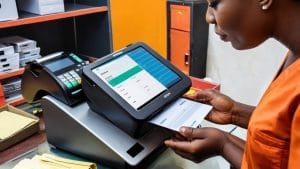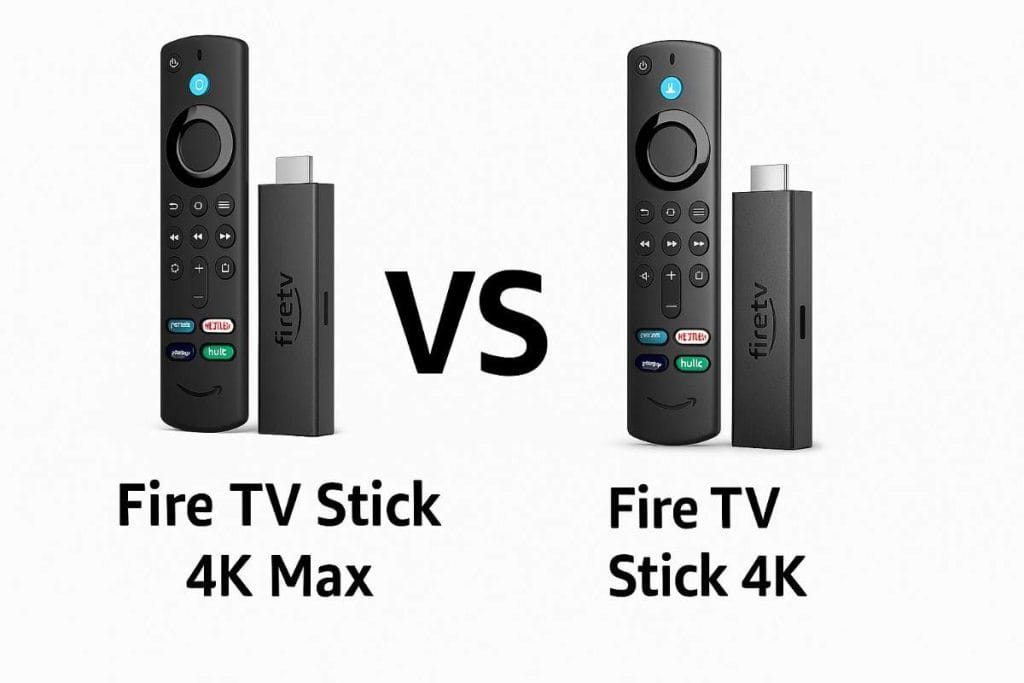Running a small business in Ondo or anywhere in Nigeria is not easy. You face problems like slow sales, poor stock tracking, and manual errors. Without the right tools, growth feels almost impossible.
The solution is to use modern POS, inventory, and invoicing systems. These tools turn your shop into a more efficient, data-driven business. They help you sell smarter, manage stock better, and keep your books clear.
Today, I am showing you exactly how SMEs in Ondo and across Nigeria can adopt these tools with confidence. You will learn why you need them, when to start, and how to overcome common barriers.
What is a POS, Inventory, and Invoicing System, and Why Do They Matter?
What exactly is a modern POS system?
A POS system is more than a cash register. It combines software and hardware to let you accept payments, track sales, and sync with your bank account. According to Square, a good POS also works across multiple locations and connects to online sales channels.
How does integrated inventory management transform operations?
With real-time stock tracking, you always know what you have. Every sale updates inventory automatically. Guides like TechnologyAdvice note that without this feature, a POS is only a cash box. Inventory control reduces overstock and prevents costly stockouts.
Why include invoicing features?
Invoicing makes billing faster and clearer. A tool that creates invoices directly in the POS saves time and improves cash flow. As The Retail Exec highlights, invoicing is often overlooked, but it gives you better financial control.
When Should an SME in Ondo Adopt These Tools?
What are the signs your manual system is failing?
If you lose track of sales or often run out of stock, it is a red flag. Errors in handwritten receipts also point to the need for automation.
What business volume or stock size triggers adoption?
Once you handle more than a few dozen products or daily transactions, manual methods collapse. At this stage, a POS saves time and prevents mistakes.
Can small shops or market traders benefit too?
Yes. Even small traders can use simple POS devices with USSD integration. For example, linking with Moniepoint USSD code helps you accept cashless payments without heavy costs.
What Are the Main Challenges in Ondo and Nigeria?
How do infrastructure gaps block adoption?
Unstable power supply and poor internet are major problems. Many SMEs in Ondo struggle with daily power cuts. Without offline or hybrid POS, you risk losing sales when the lights go out.
What digital literacy gaps matter most?
Some owners and staff have limited experience with software. This makes it hard to set up and use new systems. Training is needed, but solutions must also be easy to use.
How do cost and trust play roles?
Many SMEs fear that tools are too expensive or unsafe. However, there are affordable Nigerian solutions. For example, tools linked to bank USSD codes allow small shops to process payments securely.
How to Choose the Right POS, Inventory, and Invoicing Solution
What core features must your tool support?
Look for key functions such as:
- Real-time inventory updates
- Secure payment processing
- Reporting and analytics
- Customer profiles and loyalty options
- Invoice generation
Should you pick cloud, on-premise, or hybrid?
Cloud tools are flexible and easy to scale. On-premise gives control but needs more support. Hybrid systems let you keep working offline, which helps in Ondo when the internet drops.
What local Nigerian solutions are worth considering?
Local options often integrate well with First Bank USSD or other banking codes. This helps you bridge the gap between POS and mobile money services.
How to evaluate cost, support, and scaling potential?
Do not look only at the upfront price. Check transaction fees, customer service, and if the tool can grow with your business. Always ask vendors for demos before you commit.
How to Implement Successfully
How to run a pilot or test?
Start with one store or one counter. Test features like stock updates and payment flow before rolling out across your business.
How to train staff and build digital skills?
Hold short training sessions. Let staff practice using the POS with small, low-risk transactions. This builds confidence quickly.
How to migrate existing data?
Upload your current stock lists into the POS. Clean your data first to avoid confusion. Keep a backup of your old records in case you need to check later.
How to integrate with payments and banks?
Connect your POS with your bank account and USSD systems. For example, guides on checking your Access Bank account number help with linking accounts.
How to monitor adoption?
Check reports weekly. Look for mismatches between sales and stock. Ask staff for feedback to find pain points fast.
Use Cases and Success Stories in Ondo and Nigeria
How can a market trader benefit from POS and inventory tools?
Picture a small trader in Akure who sells clothes. She keeps stock in three small shops. Before POS, she often lost track of what items were in each branch. By using a simple POS with inventory tracking, she now updates sales instantly. Stock data is visible across all shops, so she avoids overselling and reduces lost sales.
How do multi-unit shops manage better with these tools?
A small grocery store with two branches in Ondo town switched from handwritten records to POS software. Now, the manager can view sales from both shops in real time. This helps with planning promotions, ordering new stock, and spotting bestsellers.
What lessons can other SMEs learn?
The key lesson is to start small. You do not need to buy the most expensive POS on day one. Instead, use an affordable system, learn the basics, then scale up as your business grows.
How to Overcome Constraints and Reduce Risks
What fallback strategies work during power or internet failures?
Choose a POS that has an offline mode. This lets you keep selling even when the internet drops. Hybrid systems sync data back to the cloud once you reconnect. Backup power like small generators or solar kits also keep your shop open.
How to phase in adoption to avoid disruption?
Do not switch everything overnight. Start with one feature, like invoicing or inventory. Add more modules later when staff are ready. This step-by-step approach reduces stress and cost.
How to budget for ongoing costs?
Factor in monthly software fees, transaction charges, and training costs. A small monthly budget now can save you larger costs from errors and lost sales later. Always compare vendors to avoid hidden charges.
How to protect data and improve security?
Choose vendors that meet PCI security standards. Set strong passwords and update them often. Use role-based access so only trusted staff can view sensitive data. Many POS apps also offer 2-step verification for extra safety.
What’s Next — Roadmap and Resources
What small steps can you take this week?
Start by writing down your current process. Note where mistakes happen most often. From there, research two or three POS tools and ask for demos. Even a 30-minute trial will show you how the system works.
What local programs support SMEs in Ondo?
Check local tech hubs and banks that run training workshops. Some programs include discounted POS devices or free digital literacy classes. This lowers both cost and learning barriers.
Where to find more guides and resources?
You can read our full guide on all bank USSD codes in Nigeria to learn more about payment integration. For specific banks, check our resource on the First Bank USSD code and Access Bank account checks. These guides make connecting your POS to local banks much easier.
FAQs About POS, Inventory, and Invoicing Tools
What is the minimum cost to start with POS in Nigeria?
Basic mobile POS devices start around 20,000 to 40,000 Naira. Cloud software may add monthly fees. Always compare vendors for the best fit.
Can POS tools work offline?
Yes. Many hybrid systems allow offline transactions. They later sync data when you reconnect to the internet.
How secure are cloud POS solutions in Nigeria?
Cloud systems are secure if you use trusted vendors. Look for encryption, compliance with PCI standards, and two-factor logins.
Can small stalls manage without invoicing?
Yes, at the start you can focus only on sales tracking. But adding invoicing later helps you manage customers and track payments better.
How often should I do stock audits?
Run cycle counts weekly and full audits monthly. This keeps your data accurate and reduces losses from theft or error.
Conclusion
Digital tools are not only for big companies. SMEs in Ondo can also benefit from POS, inventory, and invoicing systems. They reduce errors, cut costs, and open new growth opportunities.
Start small, train your team, and use the right local solutions. With steady steps, your business can move from paper and manual records to smarter, tech-driven success.
If you are ready, begin by checking your current pain points. Then, explore one POS option that matches your budget and needs. Your path to growth starts with one simple upgrade.
- Top 5 Greater Goods Food Scale For Kitchen Scales 2025: Precision You Can Trust - October 25, 2025
- Top Bluetooth Food Scales 2025 | Precision & Sync Power - October 25, 2025
- Best French Press Travel Mug 2025 | Top Portable Coffee Press - October 24, 2025

